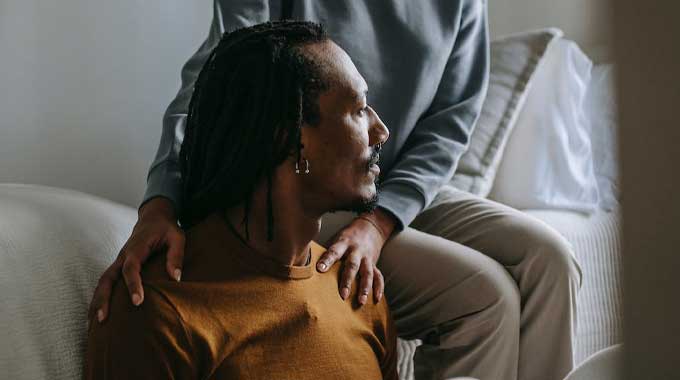Addiction: A Family Disease
Compulsive drug or alcohol use can shatter relationships with family members.
Substance use disorders lead us to behave in ways that break the trust of loved ones, either through broken promises, neglected relationships, or outright verbal or physical violence. This has particularly calamitous consequences for children when they have witnessed addiction’s effects on family life either firsthand, in the aftermath, and through behavior towards them or other family members.
This has consequences, both for relationships and kids themselves. According to a review by the National Library of Medicine, children in this position are at risk of a range of emotional, behavioral, social, school, and legal problems.
Risk of Addiction in Kids
Many parents in recovery are deeply concerned that their kids will follow them into drug or alcohol abuse because of their childhood exposure, and it’s important to understand that all other things being equal, the children of parents with a drug addiction are at higher risk of developing a substance use disorder themselves. Addiction-related factors in the family, such as a lack of close attachment, nurturing behavior, or ineffective parenting in early childhood, can also increase risk factors for adolescents – but it isn’t all bad news.
The National Institute on Drug Abuse has outlined several protective factors that reduce the risk of addictive behaviors being passed on. The best things that you can do now that you have entered recovery are:
- reconcile any hurt and rebuild a strong bond between your children.
- get involved in your children’s lives, from school to hobbies, friends, and other interests.
- set clear limits for your children’s behavior.
- enforce reasonable discipline consistently.
Family Therapy – The First Step
Many people don’t know where to start on improving communication, building trust, or healing damaged relationships. A history of addiction hinders these channels, even more, tangling our interactions in a web of past hurt, assumptions, stigma, and inhibition. This is where family therapy – a type of group therapy for you and your loved ones – comes in.
Neutrality
There are no relationships more burdened with emotions and expectations than familial ones, and the home can be a difficult environment to heal conflicts and rebuild trust and communication skills. Family therapy offers a neutral, safe space officiated by an unbiased professional, in which you and your loved ones can feel confident and comfortable speaking openly about problems that may be difficult to be honest about in the usual family surroundings.
Understanding Roles
Our interactions with the external world and our internal feelings are deeply influenced by our relationship to and position within the family unit. The roles that we take on can be positive or negative, limiting or expansive, and can also change. A fundamental familial therapeutic technique involves investigating and understanding how we define our roles in our family members’ lives. This analytical system gives us a clear objective language when looking at our family relationships. It can work extremely well when communicating with children about addiction, recovery, past behavior, and trauma. At the same time, you may want to practice role restructuring – a type of family counseling that can help you transform codependent or enabling roles in your household.
Understanding Boundaries
Families that have been shaken by addiction often struggle with emotional and behavioral boundaries – but both setting and respecting boundaries are important parts of reclaiming your position as a responsible and trustworthy parent and family member. Your family therapist will work with you and your children to help you communicate expectations about what is and is not appropriate behavior in your household from here on out – a fundamental requirement in bringing stability after the chaos of alcohol or drug addiction.
Read more: Rehab Santa Ana, CA
Reach Out
If you’re a parent in recovery, you will be well aware of how your substance use has harmed the people around you. You took a brave and challenging step when you chose to accept the reality of how addiction was impacting your life and committed to addiction treatment, not just for yourself but for your entire family. You should be proud of the difficult changes you’ve made to build a safe and healthy life for yourself and your loved ones.
Substance use disorders leave deep wounds in family relationships that take time, support and guidance to recover from. Love is there, but as we know, addiction has a way of twisting even the best things into something ugly. Reaching out to a family therapist as a complement to individual treatment can make a huge difference in healing the family unit and building a happier future for everyone in your home.






